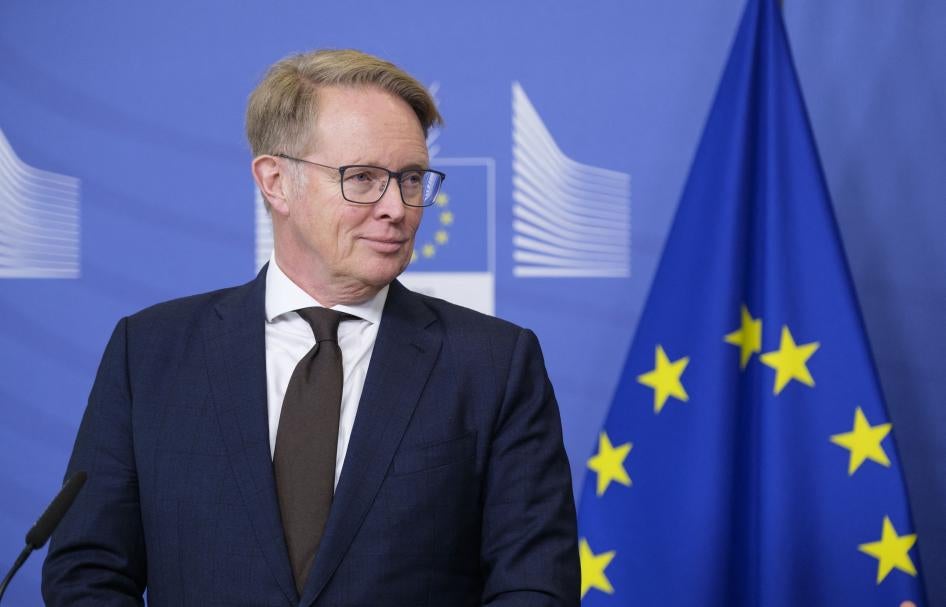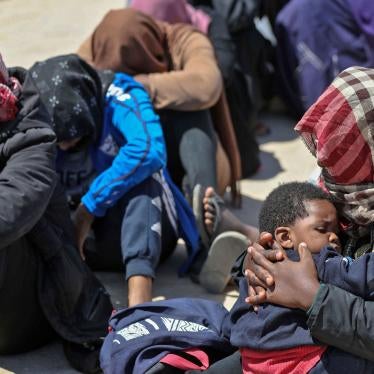The new executive director at the European Union’s border agency, Frontex, should address the agency’s grave failings and ensure it puts respect for human rights front and center.
Human Rights Watch sent a letter to new Executive Director Hans Leijtens on his first day in office, urging him to reform Frontex and ensure its operations are aligned with its mandate and responsibilities to protect rights.
Evidence has amassed showing how Frontex has not only failed to safeguard people against serious rights violations at the EU’s external borders but became complicit in such violations. Leijtens has already committed to ending Frontex involvement in unlawful pushbacks, which deny people’s right to claim asylum and expose them to abuse, and greater transparency in investigating rights violations.
In December 2022, Human Rights Watch and Border Forensics published evidence demonstrating Frontex’s complicity in the interception of thousands of migrants and their return to serious abuse in Libya. The investigation found that, rather than alerting private and humanitarian rescue ships of nearby boats in distress, the agency shared aerial surveillance of such boats with abusive Libyan coast guard forces so they could intercept them.
Human Rights Watch has also found that Frontex’s oversight, reporting, and monitoring mechanisms are failing to prevent Frontex complicity in abuse by EU states. It is critical that Leijtens takes bold action around Frontex border operations, including by suspending or terminating operations in situations where serious mistreatment is well documented, as in Greece and Croatia.
Frontex also needs to take all appropriate measures in the Central Mediterranean to ensure it is not complicit in the interception and return of people to Libya where they are subject to arbitrary detention and well-documented widespread and systematic rights violations, including torture, forced labor, and exploitation.
Over the last two years, Frontex has taken some important steps to integrate human rights into its operations. A Fundamental Rights Officer is now in place with a team of rights monitors and the agency adopted a fundamental rights action plan. More transparency and a willingness to act when human rights are at risk is needed now.









